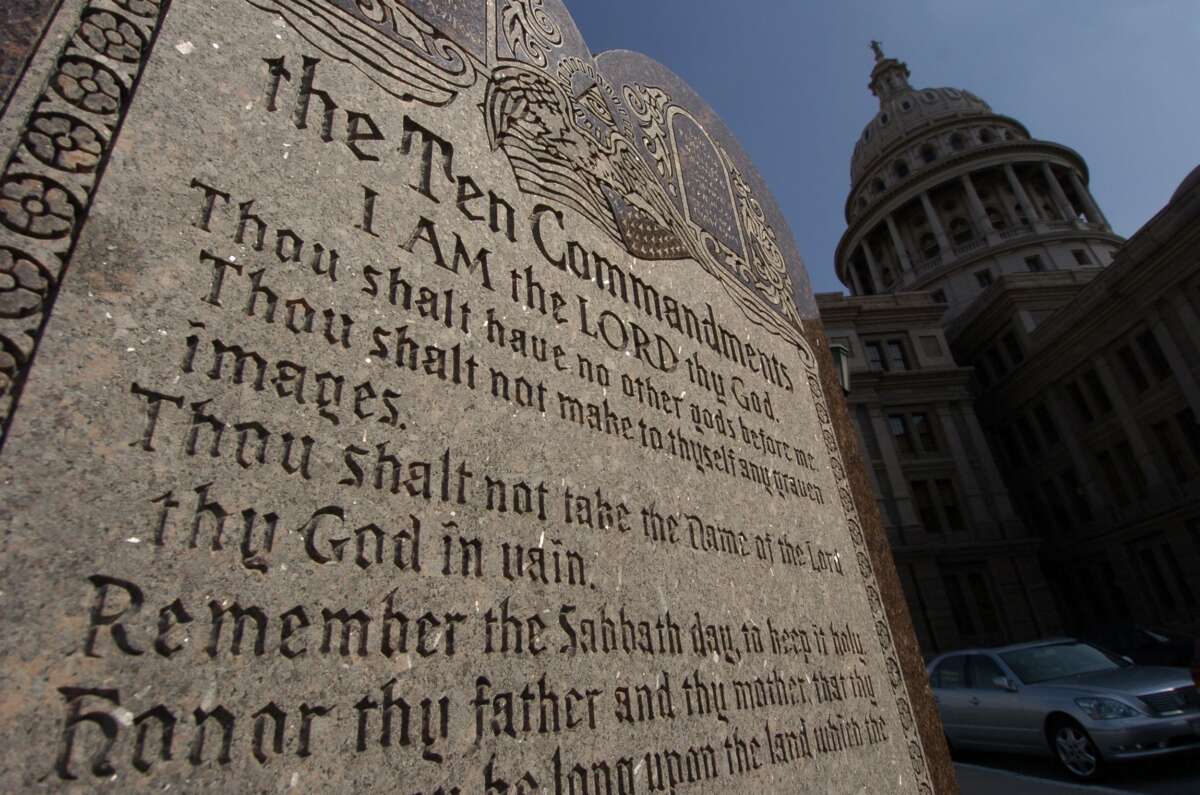Did you know that Truthout is a nonprofit and independently funded by readers like you? If you value what we do, please support our work with a donation.
Republicans in the Texas state Senate have passed a bill that would require teachers to post the Ten Commandments in every public school classroom — a move that many legal experts have said is a blatant attack on constitutional standards on religious freedoms and protections.
Senate Bill 1515 would require all public elementary or secondary schools in the state to display “in a conspicuous place in each classroom of the school” a copy of the Ten Commandments — a set of rules that serves as the pillar of Christianity and Judaism.
The bill’s passage appears to be an attempt to instill Christian nationalist values in Texas schools. The bill’s author, Sen. Phil King (R), justified the passage of the bill by falsely claiming that such principles were espoused by the nation’s founders.
“[The bill] will remind students all across Texas of the importance of the fundamental foundation of America,” King said at a hearing on the bill earlier this month.
The bill now goes to the state House of Representatives for consideration. It’s unclear whether Republican Gov. Greg Abbott will sign it into law if it reaches his desk, though he has exhibited support for Christian nationalist viewpoints in the past.
Constitutional norms and precedents established by the Supreme Court in the 20th century have banned displays of religion in schools and other public settings, noting that they violate the First Amendment’s ban on governmental religious preference. But far right lawmakers — citing a recent ruling by the Court allowing a public school football coach to lead his players in prayer — are hopeful that the Court, which has taken a hard-right shift in recent years, will overturn those precedents.
Some Christian groups have spoken out against the bill. John Litzler, general counsel for the Texas Baptists Christian Life Commission, noted that the Ten Commandments contain themes that parents may not want their children exposed to, like adultery and “coveting” other people’s spouses.
“I should have the right to introduce my daughter to the concepts of adultery and coveting one’s spouse,” Litzler said. “It shouldn’t be one of the first things she learns to read in her kindergarten classroom.”
Other social media users opposed the legislation on the grounds that it clearly violates the separation between church and state, a standard that has existed (though it has not always been practiced) since the start of the U.S.
John Chawner, a computer programmer who lives in Texas, blasted the legislation on Twitter. “This is simply repulsive,” he said, adding that it will “easily be struck down as unconstitutional.”
“Shouldn’t parents teach their kids this stuff/convey their own beliefs, religious or otherwise, and not the state?” pop culture columnist Suzanne Halliburton said.
Author and political commentator Keith Boykin shared a 1980 Supreme Court ruling, Stone v. Graham, which forbade Kentucky lawmakers from imposing a similar requirement in schools.
“We conclude that Kentucky’s statute requiring the posting of the Ten Commandments in public school rooms has no secular legislative purpose, and is therefore unconstitutional,” Boykin wrote on Twitter.
In comments to Truthout via email, Steven Emmert, executive director of the Secular Coalition for America, said that the legislation was clearly unconstitutional.
“It is very unfortunate that many members of the Texas Legislature have never read the US Constitution, nor any history of our Founders’ beliefs in the separate roles for government and religion,” Emmert wrote. “This piece of legislation is in clear violation of the U.S. Supreme Court’s ruling in Stone v. Graham. This requirement, the Court ruled, violates the establishment clause of the First Amendment.”
“Religion should play no role in our public education,” Emmert concluded.
Press freedom is under attack
As Trump cracks down on political speech, independent media is increasingly necessary.
Truthout produces reporting you won’t see in the mainstream: journalism from the frontlines of global conflict, interviews with grassroots movement leaders, high-quality legal analysis and more.
Our work is possible thanks to reader support. Help Truthout catalyze change and social justice — make a tax-deductible monthly or one-time donation today.
